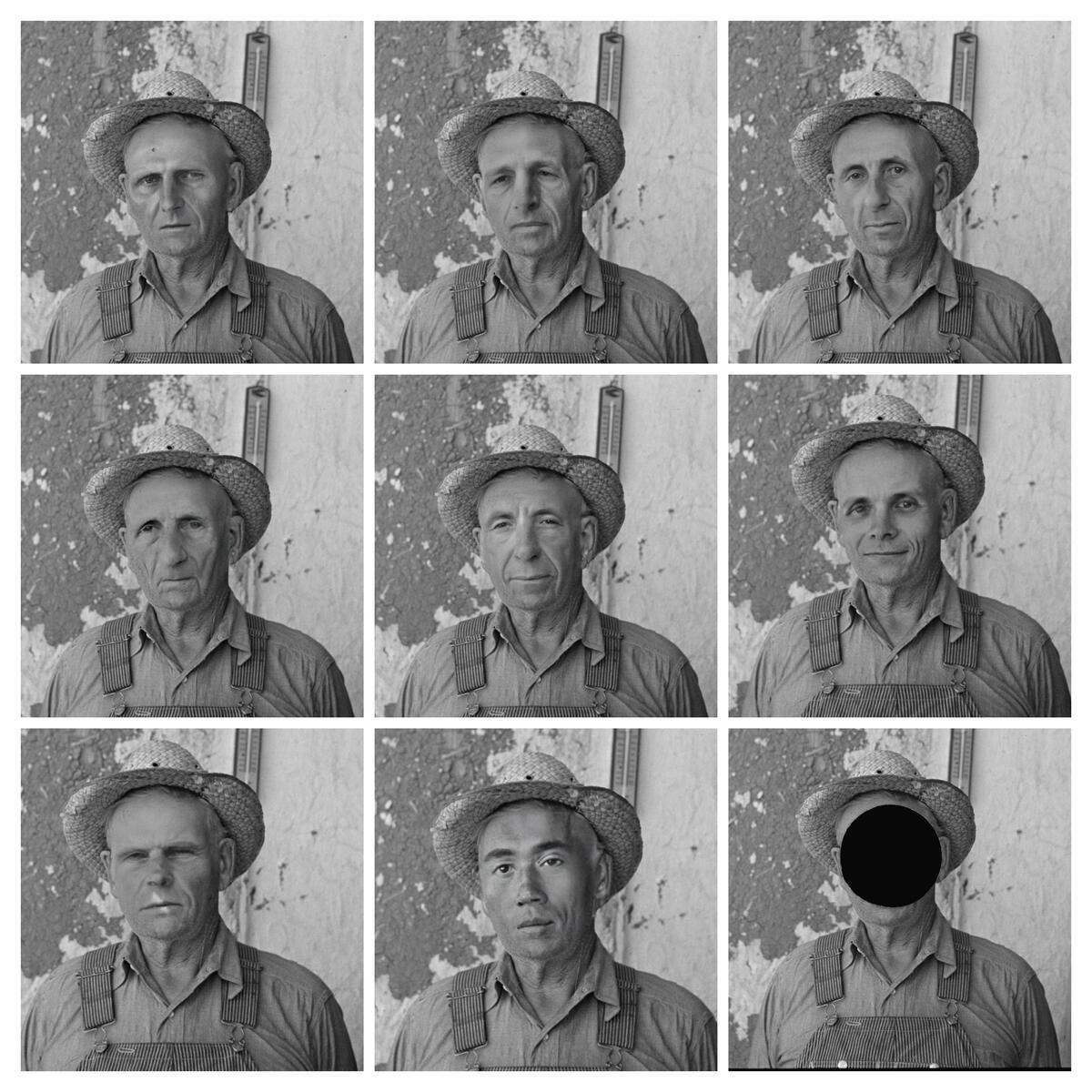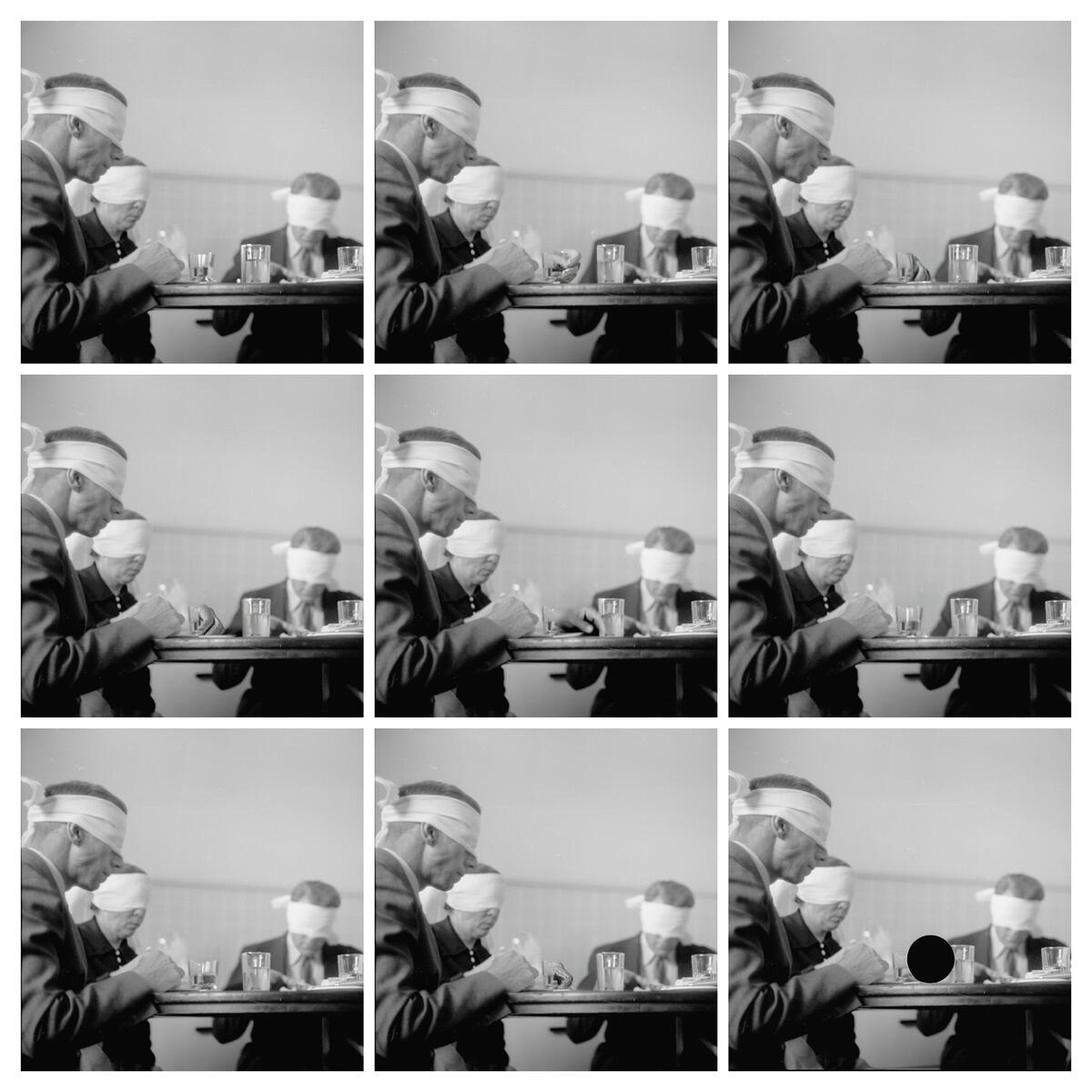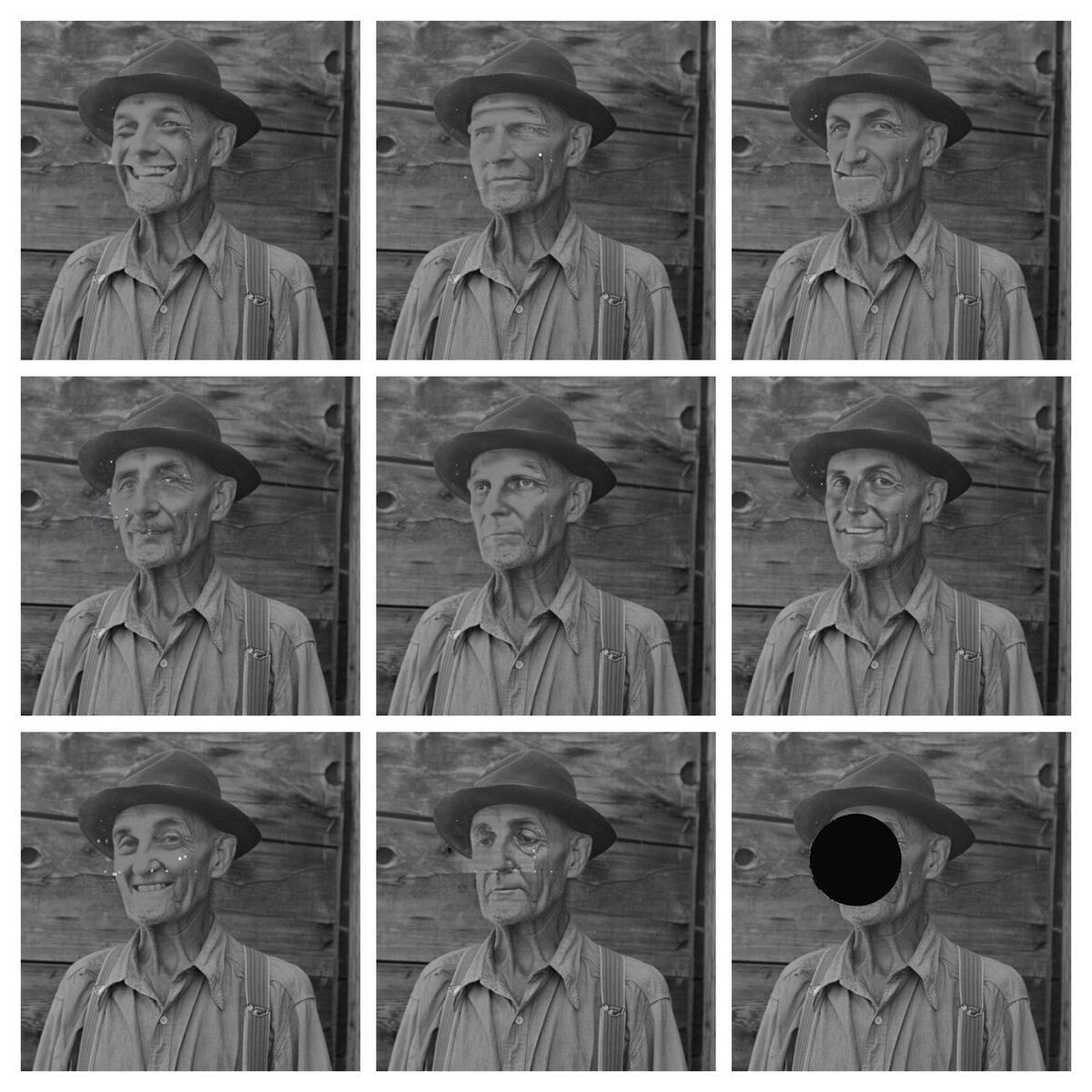- 1/1
© Phil Hill, Rehabilitation Client, 2023
"We are at that point again; where technology will create a paradigm shift in the way that we communicate and consume media, calling into question ideas of “truth”. FSA was a heavily subjective documentary project, strictly controlled by its editor Roy Stryker who “killed” negatives with a hole punch if they did not suit the narrative. I used AI to “restore” the photographs, creating a series of “generations” that manipulate the image. The new versions become a composite of what the AI believes the photograph should look like based on my input."
- 1/1
© Phil Hill, Rehabilitation Client, 2023
"As we continue to grapple with the impact of technology on our lives and our art, this series is part of a conversation in new ways of thinking about the power of photography to shape our perceptions of reality."
–Phill Hill
- 1/1
© Phil Hill, Rehabilitation Client, 2023
Read Phil Hill's project description here
Rehabilitation
Project description
The Farm security Administration (FSA) Photo File was created at a point in time where photography ‘was emerging fast as mass tool of mass communication’ (Tagg, 1988, p. 181). We are at that point again; where technology will create a phase shift in the way that we communicate and consume mass media, calling into question ideas of ‘truth.’
The FSA project can be compared to the rapid arrival of Artificial Intelligence (AI). As John Tagg notes: ‘the “truth” of these individual [FSA] photographs may be said to be a function of several intersecting discourses: that of government departments, that of journalism, more especially documentarism, and that of aesthetics […] a composite picture of rural America in the late 1930s and early 1940s, conceived by apparently one man but called into being, administered and employed by specific government agencies’ (1988, p. 173).
FSA was a heavily subjective documentary project, strictly controlled by its editor Roy Stryker who ‘Killed’ negatives if they did not suit the narrative, with a hole punch.
I used AI to ‘restore’ the photograph, creating a series of ‘generations’ that retouch the image drawing from a ‘composite’ of what the AI believes the photograph should look like based on my input. Each generation is imposed on the archive image subtly, and others not so subtle but each different from the next.
Through my use of AI, I highlight the ways in which this technology can be both a tool for creativity and a potential threat to authenticity in photography. This work speaks to larger issues around representation, manipulation, and the ethics of image-making in the 21st century. As we continue to grapple with the impact of technology on our lives and our art, this series is part of a conversation in new ways of thinking about the power of photography to shape our perceptions of reality.


